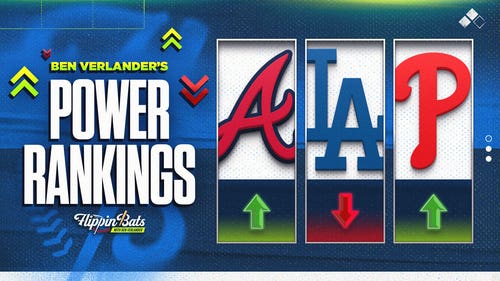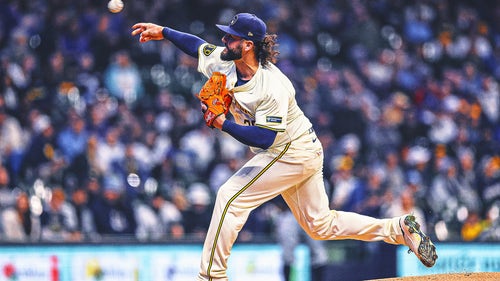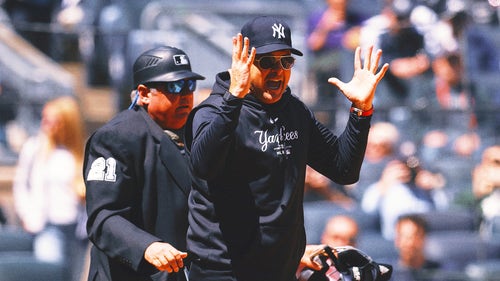





































































































































Front-office stability good for Indians
With the Indians' long-awaited front-office restructuring, another chapter in the ongoing saga of struggles of low-revenue clubs begins.
The Indians' planned promotions of Mark Shapiro to team president and Chris Antonetti to general manager represent not only a natural progression, but also a new way for the team to confront trying conditions.
Ask Oakland, ask Tampa Bay, ask any of these clubs: The 21st-century baseball economy is stifling, at least under the current labor agreement, which expires after the 2011 season.
The circumstances are different in each case — Oakland needs a new ballpark, Tampa Bay a new ballpark and a new division, Cleveland a better local economy.
The list goes on — Kansas City, Pittsburgh, Florida, San Diego, etc. Creativity is paramount for such clubs, particularly now that high-revenue teams such as the Yankees and Red Sox are operating with ruthless efficiency.
The Indians, at least, are trying.
Much as they appear to be going about business as usual — Shapiro and Antonetti will remain 1-2 on the executive depth chart once they assume their new positions after the 2010 season — the team's latest plan is actually fairly unique.
Shapiro will oversee baseball and business. His goal will be to fuse the two more seamlessly, helping the business side build revenue to support the baseball operation. In a market as limited as Cleveland, the Indians need such a cohesive vision.
While Shapiro admits that he has "a lot to learn" about the business of baseball, leadership is perhaps his greatest strength. He will spend part of the season attending marketing and budget meetings. Antonetti will assume an even greater role on the baseball side.
Shapiro had not grown stale or burned out; his peers consider him one of the game's top executives. But he is nearly 43, married with young children. He relishes new challenges. He never considered himself a GM for life.
And, let's face it, his job grew more significantly difficult after the Indians came within one game of reaching the World Series in 2007.
Shapiro's critics note that he has had only two winning seasons out of eight. But he took over the Indians when their farm system was barren, and will depart with the team in a down cycle driven largely by economics.
No longer do the Indians sell out home games the way it did in the mid-1990s. No longer is Cleveland as vibrant as it was in those festive years.
Shapiro, in a span of 13 months, traded back-to-back Cy Young winners, CC Sabathia and Cliff Lee, and a player he considered a model Indian, catcher Victor Martinez.
Then he fired his friend, manager Eric Wedge, when the Indians lost 97 games last season, their most since 1991.
"There are clearly ebbs and flows in the energy it takes to do this job," Shapiro said. "This past season took a toll on me, without a doubt. But like any cycle, your energy revives, you get excited and focused about the future.
"The toughest part of the season was not the issue of public backlash (from the Lee and Martinez trades). It was the reality of knowing I wouldn't work my whole career with one manager. That's the way I had always envisioned it."
So, after this season, it will be Antonetti's turn; Shapiro still will be involved, but he, too, looks forward to the franchise being re-energized by fresh ideas, fresh energy.
The Indians' new manager, Manny Acta, is excited to be in Cleveland; he chose the Indians over the Astros. Antonetti, meanwhile, is highly regarded within the industry, and has spent years waiting for his chance.
Some of Shapiro's friends wonder if he will remain fulfilled in his new role, but for now he wants to stay in Cleveland. If he grows disenchanted with his position, he can always become GM of another team.
The Indians' position is not hopeless. Oh, Shapiro gave out his share of bad contracts, like every GM. He also drew criticism for the Indians' lack of success in the draft. But he compensated for those failures with shrewd trades, and the Indians' farm system again is ranked among the game's top five.
A rapid turnaround is possible in a division that lacks a financial behemoth, and the front-office stability should only help. The Pirates, Royals and Reds are examples of team that keep changing management teams -- and keep losing.
The Indians merely plan to tweak. It's a start.

2024 MLB Power Rankings: Who deserves No. 1 spot as Dodgers tumble?

Brewers' Jakob Junis hit by fly ball in batting practice, taken away in ambulance

DJ LeMahieu leaves 1st minor league rehab game in 2nd inning with sore right foot

20 Best pitchers in MLB 2024: Ranking the top 20 starters

Yankees' Aaron Boone ejected five pitches into game vs. A's after fan outburst


2024 MLB Power Rankings: Who deserves No. 1 spot as Dodgers tumble?

Brewers' Jakob Junis hit by fly ball in batting practice, taken away in ambulance

DJ LeMahieu leaves 1st minor league rehab game in 2nd inning with sore right foot

20 Best pitchers in MLB 2024: Ranking the top 20 starters

Yankees' Aaron Boone ejected five pitches into game vs. A's after fan outburst
